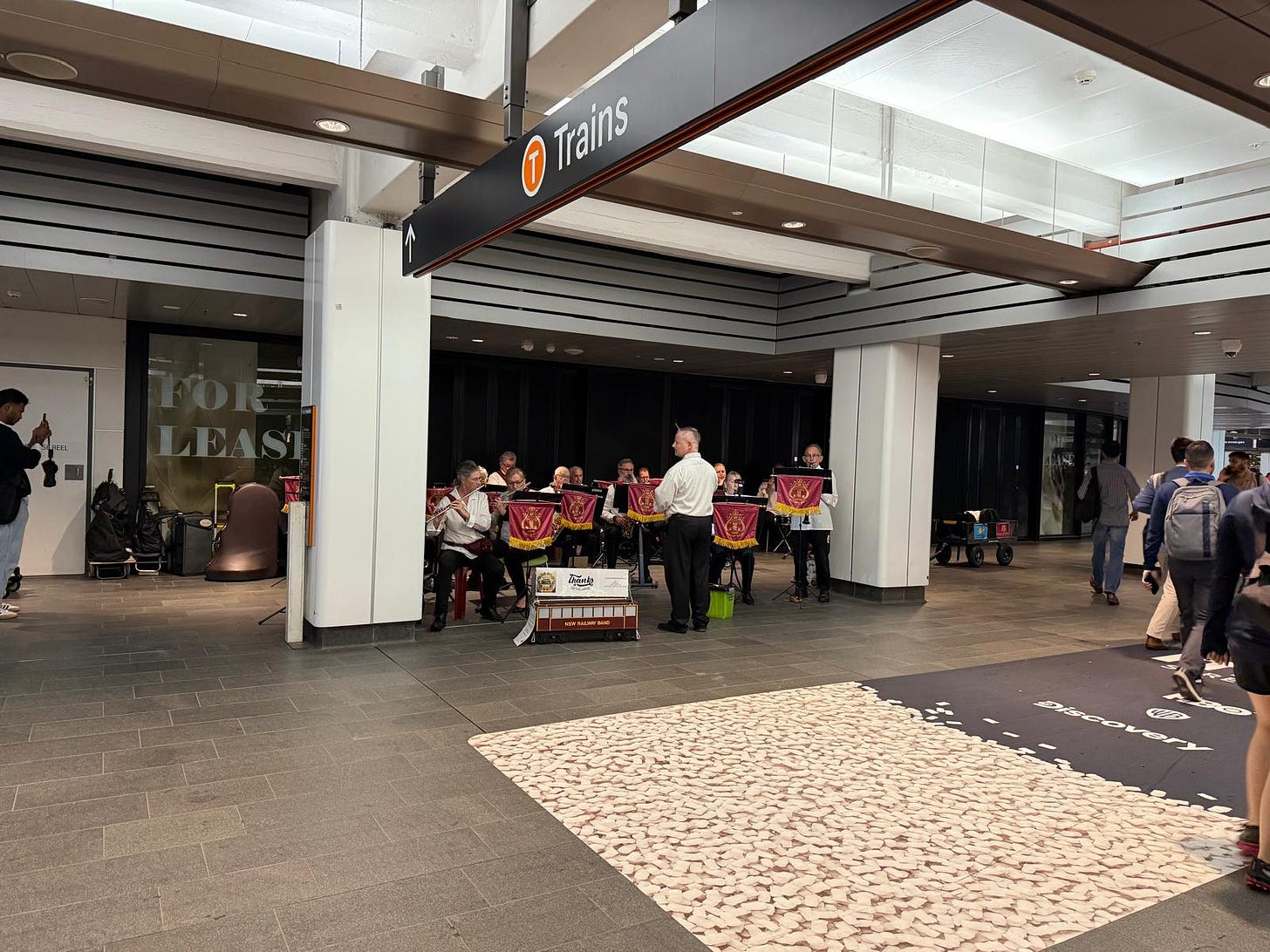the antidote to mental exhaustion is physical exhaustion
and other lessons on preventing burnout!
Burnout is not about severity.
Burnout is about consistency.
It is caused by a consistent, subtle, ever-present sense of pressure that you can’t seem to take a break from.
It is not a single terrible event or even a series of them, but a long-running stream of not-great events and decent events and one or two terrible events and seemingly endless neutral events. It is the wear-and-tear of resentment and frustration such that you can’t point at a singular cause.
It’s a bit like littering: Each piece of trash on its own isn’t a dramatic issue, but as it mounds together over time and nobody steps into clean it up, it grows into a stinky mountainous turd that blots out the sun.
I’ve had my fair share of building turds.
I’ve had my fair share of shoveling them out.
So here are a few nifty ideas I’ve learnt between crashing into the blazing demise of my own making.
1. The antidote to mental exhaustion is physical exhaustion 🚴🏻
Context switching, which is when you stop one task to finish another and then pick up where you left off, is heralded as one of the biggest productivity killers of the modern-age office worker. Sometimes, persistent context switching is a cause of burnout.
However, we’re not here to talk about productivity.
Context switching, or more particularly changing your environment, is one of the best ways to alleviate burnout.
Lunch break? Have it in the kitchen.
Got ten minutes? Take a step outside.
And when you’re clocking out of work, and this is especially so if you’ve been snuggled at home with a polo up top and pyjamas down bottom — get the hell out of your room.
Interrupt your mentally-demanding activity with a physically-demanding one, no matter how small.
Go for a walk. Whip up a snack. Spend a few minutes vacuuming the corners of your home.
Even the commute between office and home is an effective way to context-switch yourself from work mode to home mode, and vice versa.
This context switch, incited by a change in environment and completed by a switch in which muscle you use (no more brain, all brawn) — it shocks your body like an ice bath; the healthiest distraction of all.
Disclaimer: If you’re in a physically-demanding field, I imagine you need to do the opposite.
2. Have a chat! 💬
I have found that one of the best solutions to a tiresome day, regardless of whether I’ve had an overly meeting-heavy day versus a locked-up administrative experience — is to have a goddamn conversation.
(And yes, this is coming from an introvert — or so I proclaim.)
A chat about anything, as stupid as it is, with someone that you care about and who cares about you.
A conversation that you can slip into like… I don’t know, your favourite sock.
It doesn’t have to be deep. It preferably isn’t deep at all.
It is light and fluffy and soft-hearted. Not that traditional small talk — you’ve had enough chatter of weather, public transport and business initiatives with your colleagues.
It’s gossip. It’s cool shoes. It’s songs you love and hate. It’s oddly specific references to TV shows you’re watching. It’s an argument why cats are better than dogs. It’s brainstorming the name, concept and premise of your matcha bar if you hypothetically owned one.
You’ve given away enough of your energy through conversations with friends-tied-by-employment. You deserve to gain it back through conversations with friends-tied-by-love.
3. When everything seems fast, opt for slowness ⏪
We live in a society that is constantly in the search for better and faster ways at doing something.
It glorifies the archaic notion of busyness — which is ironic, because if you’re spending all day being busy, it’s probably because you’re not efficient enough.
I’m petitioning for activities that are intentionally slow, cumbersome, perhaps even outdated:
Ditch the car for a slow, scenic walk to the shops
Take notes with pen and paper instead of a keyboard
Prepare a roast from start to finish
Brew your tea according to the actual instructions on the package
Watch a video at 1x speed.
Play something that demands patience over speed - no matter what anyone says
And look, when we’re feeling especially chuffed up, we should take these shortcuts (see: cranking up that good ol’ Uber Eats). Just have some awareness that where you choose to save effort, you may be paying through something else that is more than money.
There is great value in letting your heart and body beat at their own pace.
4. Deciding to offload your decision-making 🕔
The morning routine does not start in the morning.
It starts before you go to bed the previous night.
It starts when you pack tomorrow’s lunch, hang your snazzy shirt-pant-sweater combo, stuff socks in your shoes and book the badminton court for 6:00pm.
Some sources suggest we make over 35k micro decisions per day. It’s unlikely that all those decisions are good and I’d wager that we’ve got a lot worse strike rate in the evening compared to the morning.
Alas, it helps to pre-load our decision-making far in advance — leaving the meagre energy we have after work for execution, for deliberation.
And if we were to show up at the court tomorrow evening and decide that we really couldn’t be arsed for those next two hours — that is more than fine.
Your schedule is a default, not a definite. You have every right to surrender your gym shorts for some sweatpants and that racquet for a cone of ice cream.
5. Sometimes, self-care is getting the thing done 🔫
Unfortunately, I’ve got one decisive truth for you.
No amount of time management spreadsheets, cucumber-clad spa dates, and overhead bench presses will remedy the problem of getting your work done.
There will be times when the best course of action, no matter how exhausted you are, is getting that stupid thing across the line.
All-nighters, for both work and school, are seldom a good idea — but if doing an all-nighter is what differentiates something getting submitted or 0% on said assignment; I’d happily smash my sleep schedule.
The challenge here is figuring out when to use this trump card.
Using it too often is a fast-track invitation for burnout.
Unless you hold up the planet earth on your shoulders or are in the business of saving lives (in which case, my condolences to you), your clients can wait till Monday.
This is not about them. You use this when YOU can’t wait till Monday.
Train your judgement and trust your judgement. It is on you to differentiate between must-haves and good-to-haves and to give yourself the support system you need.
***






